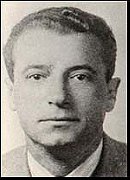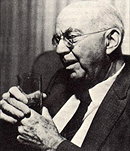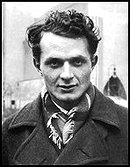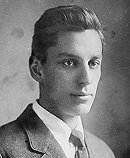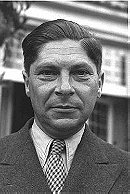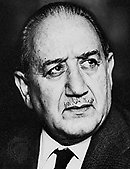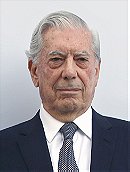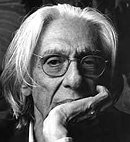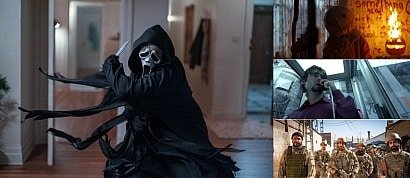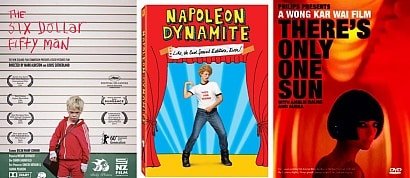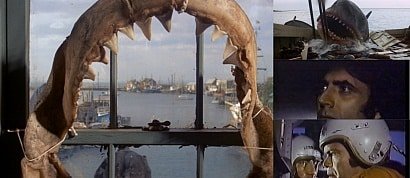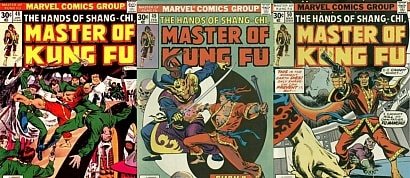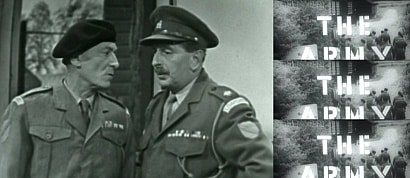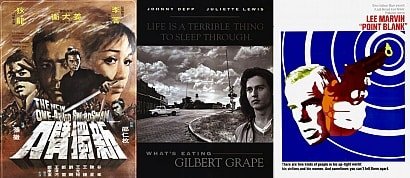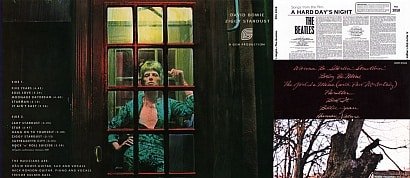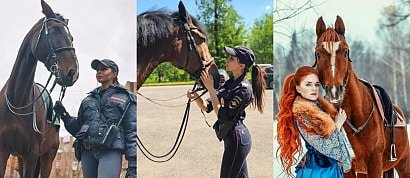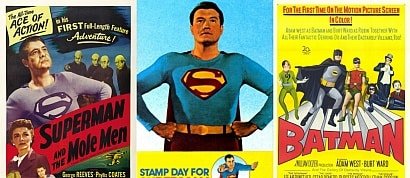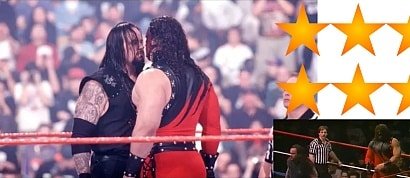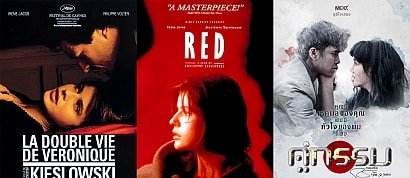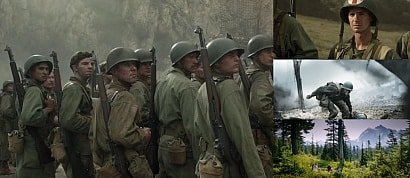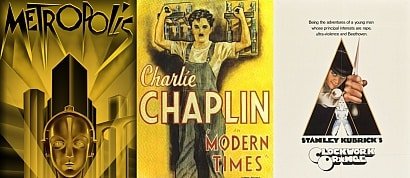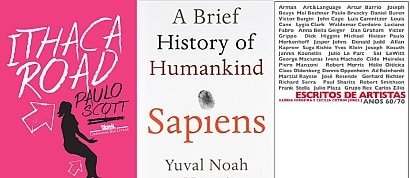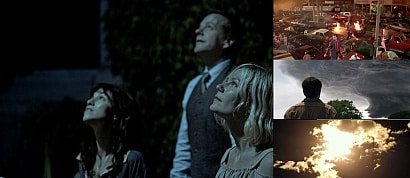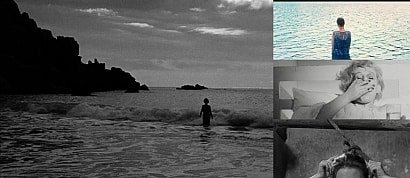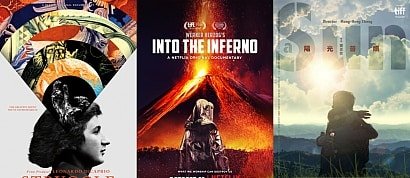Anti-communists who were once Marxists
Sort by:
Showing 11 items
Rating:
List Type:
During the 1930s, he briefly became a communist, or more precisely, a fellow traveler (he never formally joined the Communist Party). As a distinguished writer sympathizing with the cause of communism, he was invited to tour the Soviet Union as a guest of the Soviet Union of Writers. The tour disillusioned him and he subsequently became quite critical of Soviet communism. This criticism of communism caused him to lose socialist friends, especially when he made a clean break with it in Retour de L'U.R.S.S. in 1936. He was also a contributor to The God That Failed.
"In my opinion, in no country today, not even in Hitler’s Germany, is the spirit more suppressed, more timid, more servile than in the Soviet Union."
"In my opinion, in no country today, not even in Hitler’s Germany, is the spirit more suppressed, more timid, more servile than in the Soviet Union."
Victor Andreevich Kravchenko (Ukrainian: Віктор Андрійович Кра́вченко, 11 October 1905 – 25 February 1966) was a Soviet defector, known for writing the best-selling book, I Chose Freedom, published in 1946, about the realities of life in the Soviet Union.
Kravchenko defected to the United States during World War II, and began writing about his experiences as an official in the Communist Party of the Soviet Union and raising awareness of the Holodomor.
Kravchenko also wrote a lesser known book, that was the sequel to "I Chose Freedom", entitled "I Chose Justice" in 1950. His inspiration came from a paranoia stemming from his "Trial of the Century" and the McCarthy's, so-called,"anti-communist witch hunt". Kravchenko realized that the western world engaged in injustices against humanity resembling the regime he originally fled from.
Later in life he wrote about his experiences in America under capitalism, until his death under suspicious circumstances in 1966.
Kravchenko defected to the United States during World War II, and began writing about his experiences as an official in the Communist Party of the Soviet Union and raising awareness of the Holodomor.
Kravchenko also wrote a lesser known book, that was the sequel to "I Chose Freedom", entitled "I Chose Justice" in 1950. His inspiration came from a paranoia stemming from his "Trial of the Century" and the McCarthy's, so-called,"anti-communist witch hunt". Kravchenko realized that the western world engaged in injustices against humanity resembling the regime he originally fled from.
Later in life he wrote about his experiences in America under capitalism, until his death under suspicious circumstances in 1966.
In 1920 his first novel, One Man's Initiation: 1917, was published, and in 1925 his novel, Manhattan Transfer, became a commercial success. In 1928, he went to the Soviet Union to study socialism, and later became a leading participant in the 1935 First American Writers Congress sponsored by the communist-leaning League of American Writers. He was in Spain in 1937 during the Spanish Civil War, when the murder of his friend José Robles soured his attitude toward communism, and led to severing his relationship with fellow writer Ernest Hemingway.
In 1936 he became a member of the Communist Party of Great Britain. Harry Pollitt, head of the CPGB invited him to write for the Daily Worker on the Moscow Trials. In 1937, during the Spanish civil war, they sent him to Spain. His mission was to observe and report on the Soviet ship Komsomol, which had sunk while carrying Soviet weapons to the Second Spanish Republic. Spender traveled to Tangier and tried to enter the country via Cadiz, but he was sent back. Then he traveled to Valencia and met with Ernest Hemingway and Manuel Altolaguirre. (Tony Hyndman, alias Jimmy Younger had joined the International Brigade who were fighting against Francisco Franco's forces in the Battle of Guadalajara.) Spender was imprisoned for a while in Albacete. In Madrid he met with André Malraux; they discussed André Gide's Retour de l'U.S.S.R. Because of an medical problems he went back to England and bought a house in Lavenham. In 1939 he divorced.
A member of the political left wing during this early period, he was one of those who wrote of their disillusionment with communism in the essay collection The God that Failed (1949), along with Arthur Koestler and others. It is thought that one of the big areas of disappointment was the Molotov-Ribbentrop Pact between Nazi Germany and Stalinist Russia, which many leftists saw as a betrayal. Like fellow poets W. H. Auden, Christopher Isherwood, and several other outspoken opponents of fascism in the 1930s, Spender did not see active military service in World War II.
After the war he was member of the Allied Control Commission, restoring civil authority in Germany.
A member of the political left wing during this early period, he was one of those who wrote of their disillusionment with communism in the essay collection The God that Failed (1949), along with Arthur Koestler and others. It is thought that one of the big areas of disappointment was the Molotov-Ribbentrop Pact between Nazi Germany and Stalinist Russia, which many leftists saw as a betrayal. Like fellow poets W. H. Auden, Christopher Isherwood, and several other outspoken opponents of fascism in the 1930s, Spender did not see active military service in World War II.
After the war he was member of the Allied Control Commission, restoring civil authority in Germany.
He supported socialism and became a leading patron of the Harlem Renaissance, and an activist for a number of liberal and radical causes. For several years, he edited The Masses. With his sister Crystal Eastman, in 1917 he co-founded The Liberator, a radical magazine of politics and the arts.
In later life, however, Eastman changed his views, becoming highly critical of socialism and communism after his experiences during a nearly two-year stay in the Soviet Union in the 1920s, as well as later studies. He was influenced by the deadly rivalry between Leon Trotsky and Joseph Stalin, by which Trotsky was assassinated, as well as the wholesale abuses committed during the Great Purge. Eastman became an advocate of free-market economics and anti-communism, while remaining an atheist and independent thinker. In 1955, he published Reflections on the Failure of Socialism. He published more frequently in National Review and other conservative journals in later life, but always remained independent in his thinking; for instance, he publicly opposed United States involvement in the Vietnam War in the 1960s, earlier than most.
In later life, however, Eastman changed his views, becoming highly critical of socialism and communism after his experiences during a nearly two-year stay in the Soviet Union in the 1920s, as well as later studies. He was influenced by the deadly rivalry between Leon Trotsky and Joseph Stalin, by which Trotsky was assassinated, as well as the wholesale abuses committed during the Great Purge. Eastman became an advocate of free-market economics and anti-communism, while remaining an atheist and independent thinker. In 1955, he published Reflections on the Failure of Socialism. He published more frequently in National Review and other conservative journals in later life, but always remained independent in his thinking; for instance, he publicly opposed United States involvement in the Vietnam War in the 1960s, earlier than most.
For many years he had been a member of the Socialist Party of America, and during the 1930s he participated in Party-sponsored activities, even performing sketches at antiwar events, but split with the Party's "Old Guard faction" led by Louis Waldman. His politics soon moved to the right. In 1940, Ryskind abandoned the Democratic Party, and he opposed President Franklin Delano Roosevelt's pursuit of a third term, writing the campaign song for that year's Republican Party presidential nominee Wendell Willkie.He maintained some ties to the Socialist Party throughout the 1940s, serving as a Vice Chairman of the Keep America Out of War Congress.
About this time, he became a friend to future U.S. President Ronald Reagan. In 1947, he appeared before the House Committee on Un-American Activities as a "Friendly Witness." Ryskind never sold another script after that appearance, and he believed that his appearance before HUAC was responsible, although there is no direct evidence of an organized campaign against the "Friendly Witnesses."
About this time, he became a friend to future U.S. President Ronald Reagan. In 1947, he appeared before the House Committee on Un-American Activities as a "Friendly Witness." Ryskind never sold another script after that appearance, and he believed that his appearance before HUAC was responsible, although there is no direct evidence of an organized campaign against the "Friendly Witnesses."
In 1931 Koestler joined the Communist Party of Germany until, disillusioned by Stalinism, he resigned in 1938. In 1940 he published his novel Darkness at Noon, an anti-totalitarian work that gained him international fame. Over the next 43 years, from his residence in Britain, Koestler espoused many political causes, and wrote novels, memoirs, biographies and numerous essays.
With Fontamara (1933) and Bread and Wine (1936), Ignazio Silone became one of the leading anti-Fascist writers of the decade. Both novels dealt in part with the negative impact of Fascism on the peasant world of his beloved native Abruzzo. He voiced other concerns as well, but the reading public of that day focused on his anti-Fascist themes. Published originally in German translation, the two books would appear in Italian much later, and then to a much less enthusiastic response than elsewhere in the West. The post-World War II Italian literary establishment, deeply influenced by the Communist cultural hegemony, found him objectionable for his anti-Communism. Silone had been one of the founders in 1921 of the Italian Communist Party (PCI), which looked to the Bolsheviks in Russia for instruction and guidance. Then, as he explained in a famous memoir essay that appeared in Richard Crossman’s God That Failed (1949), the culmination of Soviet Communism in Stalinism disillusioned him. In 1931, the PCI expelled him, and from that point on, he had to face opposition from both the Fascists and the Communists.
Like many other Latin American intellectuals, Vargas Llosa was initially a supporter of the Cuban revolutionary government of Fidel Castro. He studied Marxism in depth as a university student and was later persuaded by communist ideals after the success of the Cuban Revolution. Gradually, Vargas Llosa came to believe that Cuban socialism was incompatible with what he considered to be general liberties and freedoms. The official rupture between the writer and the policies of the Cuban government occurred with the so-called 'Padilla Affair', when the Castro regime imprisoned the poet Heberto Padilla for a month in 1971. Vargas Llosa, along with other intellectuals of the time, wrote to Castro protesting the Cuban political system and its imprisonment of the artist. Vargas Llosa has identified himself with liberalism rather than extreme left-wing political ideologies ever since. Since he relinquished his earlier leftism, he has opposed both left- and right-wing authoritarian regimes.
Nusch 's rating:


People who voted for this also voted for
Film Diary of 2023
Short Films
1975 : My Favorite Horror Films
Master Of Kung-Fu : My Childhood Favorite 2
Headphones 2
British Comedy: The Army Game
Favorite Male Characters/Performances of 2016
"old school" beauty: Tamara Knausz
Movies RE-Watched in 2019
The Backs of Famous Albums
"Käthe" - the dog
Equidae & Feminae
DC Comics Live-action films
The Undertaker vs. Kane - Part 2
Films I could watch again and again
More lists from Nusch
Brazilian Actresses (90s)
2016 | Meus Filmes Favoritos
Technocracy
books read in 2016
My Favorite Pre-Apocalyptic Films
Suicide Scenes
Netflix Original Movies Ranked
 Login
Login

 6.7
6.7
 0
0
